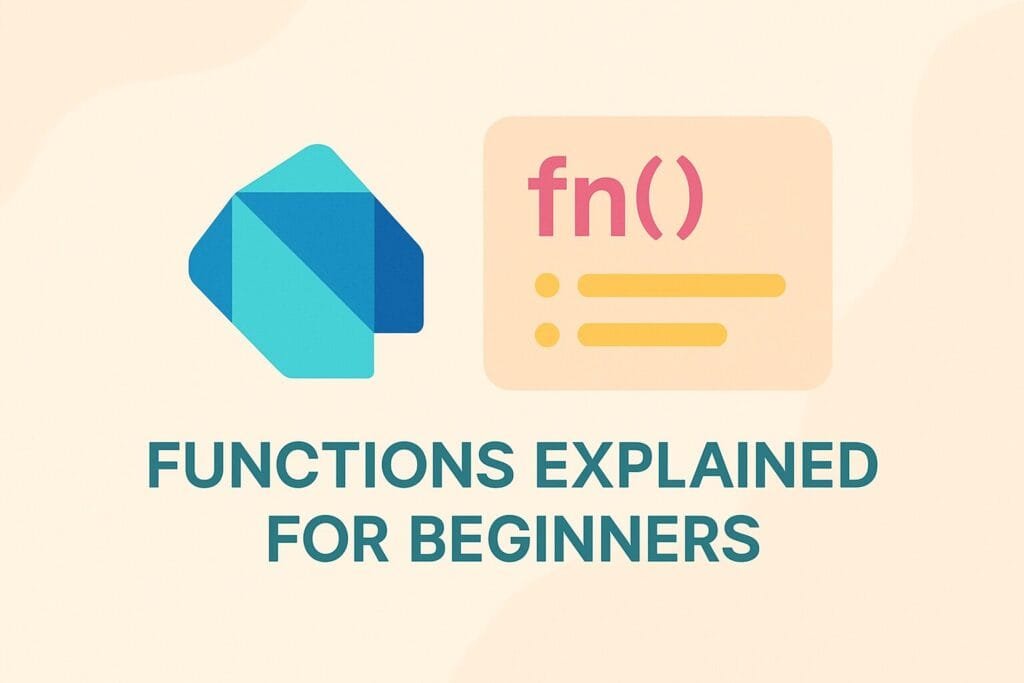If you are new to Dart programming, understanding how functions work is one of the most important steps in mastering the language. In Dart, functions are building blocks that allow developers to organize and reuse code effectively.

What is a Function in Dart?
A function is a block of code that performs a specific task and can be called multiple times throughout your Dart program. Functions help reduce repetition and improve code readability.
Basic Syntax of Dart Function
void greet() {
print('Hello, Dart!');
}
In this example:
voidmeans the function doesn’t return any value.greetis the function name.- The body of the function contains a
printstatement.
To run the function:
void main() {
greet(); // Output: Hello, Dart!
}
Dart Function with Parameters
You can also pass data to functions using parameters.
void greetUser(String name) {
print('Hello, $name!');
}
void main() {
greetUser('Alice'); // Output: Hello, Alice!
}
Dart Function with Return Value
A function can return a value using the return keyword.
int add(int a, int b) {
return a + b;
}
void main() {
int result = add(3, 5);
print('Sum is: $result'); // Output: Sum is: 8
}
Arrow Functions in Dart
Dart allows you to write concise functions using the => syntax.
int multiply(int x, int y) => x * y;
void main() {
print(multiply(4, 2)); // Output: 8
}
Why Functions Matter
Using functions:
- Improves code modularity
- Makes debugging easier
- Encourages code reuse
Learn More
You can find the full Dart documentation on dart.dev for an in-depth explanation of Dart functions and other language features.

